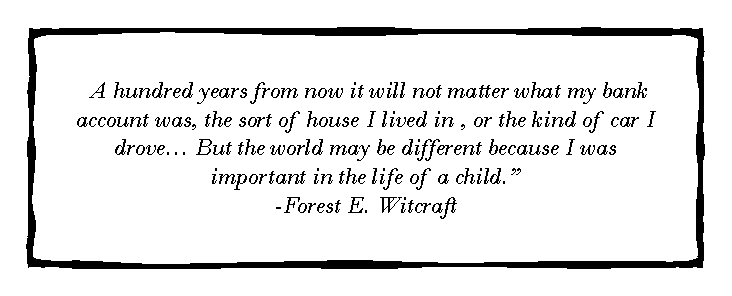Robin C. Miller
Blog Assignment Week
3
Unfortunately,
I have not been able to contact anyone on an international level yet and am
still working on that. So, for now my colleagues will be reading about podcast
that I have listened to from World Forum Radio (Part 1). Then I will discuss my
insight on childhood poverty in another country (Part 2).
Part 1 -
This week I listened to the interview with George
Forman. He has a doctorate in developmental psychology and is also the author
of several Piaget based books. His dissertation was based on discrimination
learning. During his research he realized that children learn better by actions.
He began to “think more of children’s learning as acts and events” like his
favorite philosopher Piaget.
He learned that children learn and see the world differently
than we do. We see the world they way it is, they way it’s presented to us.
Children see the world by how “things change or don’t change” (Piaget).
George became involved in the Reggio Emilia program
in Italy and quickly learned that the program helped children think about their
thinking process by actions. The program taught children to reflect a way of
thinking and understanding what you don’t understand on the surface. It helps
them to look beyond the outside view and look deeper into their childhood
imagination and understanding.
Part 2 – Case Study- Poverty and ill health pushed Banwari out of school and into work
Banwari is from Rajasthan, India. He has 6 brothers
in a family of 10. Banwari and two of his brothers had to drop out of school
because their father was sick and they needed to help care for him by working
as a carpet weaver alongside one of his brothers. After, getting exceptionally
good at weaving Banwari was able to weave at home where he works rigorous hours
to make ends meet.
He wishes that he was able to go back to school so
that he could make a decent wage for his family. He isn’t very fond of carpet
weaving but he knows that it will help his family survive so he continues to
work hard to put the rest of his brothers threw school while he takes care of
his family.
Reference:
CHIP: Childhood Poverty Research and Policy Centre.
(n.d). Case study - poverty and ill health pushed
banwari out of school and into work. Retrieved from
What I gained from this information
1.
I learned that poverty doesn’t just happen in my local
community but all over the world
2.
Children are majorly affected by poverty (having to drop
out of school and work to make ends meet)
3.
Although many children become resilient in the face of
hardship and tragedies, they are still affected emotionally, physically, spiritually,
and developmentally.

Robin,
ReplyDeleteThank you for your informative post! I can relate to all three of your insights, especially your last one. Many people have the opinion that if difficult things happen in a child's life it is best if it happens when they are very young, "because they will not remember it." This is somewhat true, however ust as you said they are still affected emotionally, physically, spiritually, and developmentally.
Hi Robin,
ReplyDeleteI have not received a response yet either, but I will use the alternative blog assigment until I get a connection. I ejoyed reading your post.